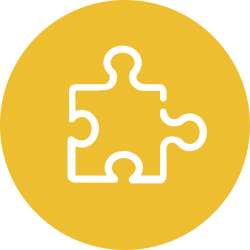We support survivors of any race, ethnicity, language, national origin, religion, sex, gender identity or expression, disability, age, and sexual orientation. All of our supports are provided to survivors free of charge.
Domestic violence is a pattern of escalating abusive, controlling and violent behavior towards a partner in an intimate relationship. The behavior can take many forms, from verbal abuse to threats, isolating the victim from family and friends, intimidation, financial control, sexual violence, physical violence, stalking, damaging property, or threatening to harm the victim’s family members, children or pets.
Dating violence involves a pattern of destructive behavior used to exert control and power over a dating partner. As with domestic violence, the abuse can be physical, emotional, verbal, sexual, or financial.
SafeLink is Massachusetts’ statewide 24/7 toll-free domestic violence hotline operated by Casa Myrna. SafeLink hotline advocates are multilingual, and all calls to SafeLink are free, confidential and anonymous. Anyone can call us for information, support and resources at 1-877-785-2020.
Learn MoreOur multilingual Community Advocacy Specialists are available at sites throughout Boston to meet with survivors and their supporters.
Learn MoreBilingual Spanish-English Housing Specialists work with survivors who have been made homeless by domestic violence, are at risk of homelessness, or need to find alternative housing options due to ongoing violence in their homes.
Learn MoreAffordable housing is a vital tool survivors need to be free of abuse. We offer housing guides and trainings about housing resources for survivors of domestic and sexual violence
Learn MoreVictims of domestic violence, dating violence, sexual assault, and stalking may be eligible for an emergency transfer if they have a reason to fear that if they do not receive a transfer, they would suffer violence in the very near future.
Learn MoreThe Legal Advocacy Program seeks to address the unmet legal needs of victims of domestic violence and commercial sexual exploitation. For no charge, attorneys and advocates work with survivors who, due to linguistic, cultural, and economic barriers, would not be able to access representation through normal channels.
Learn MoreOur bilingual Economic Stability Specialists work with survivors as they set and pursue financial, educational, vocational, and employment goals.
Learn MoreThe Counseling Services team provides individual counseling and support groups for adult and youth survivors of domestic violence, as well as referrals to specialized counseling services in the community.
Learn MoreAll of our residential programs are home-like environments in which each survivor or family has their own bedroom. Kitchens, bathrooms, living space, and dining areas are communal areas shared by all the households living in the house.
Learn MoreThe Children’s Services team works with children in our housing program and living in the community. Children’s Services Specialists provide trauma informed child care and play groups, ensure children are connected to health and wellness resources, and support parents as they advocate for their children.
Our education and outreach programs and materials are a resource for schools, colleges, after-school programs, community centers, places of worship, businesses and workplaces that want to educate their community members about domestic and dating violence.
Learn MoreThe EVA Center, a project of Casa Myrna, is a survivor led-social justice oriented program whose mission is to end all forms of prostitution and sex trafficking by changing lives, challenging public perceptions as well as addressing the situational factors contributing to the entry of women and girls into the sex trade.
Learn MoreOver the past year, Casa Myrna has increased our capacity to support youth survivors of domestic and dating violence. In Summer 2017, we kicked off a peer leader program where youth will teach others about healthy relationships and dating and domestic violence. If you are a young person interested in becoming a peer leader or would like to have youth provide training on healthy relationships and dating violence, contact us at 617-521-0124 or at yespinoza@casamyrna.org
Learn More
Safety Planning is a “harm reduction” strategy through which survivors empower themselves. They consider and make plans for their safety whether they are in or out of an abusive relationship or are thinking about leaving. This enables a survivor to think about possibilities for staying safe on a daily basis. Safety planning is very important because most surivors have some kind of relationship with their abuser, particularly if they live, work or worship in the same community or have children together. Each person should develop a safety plan that is tailored to their unique situation.
For help developing a safety plan, call SafeLink at 1-877-785-2020.

Regardless of whether you are currently in an abusive relationship, abusers are controlling and will often attempt to monitor your activities, including your phone, computer, email or social media accounts. If you think your online usage is being monitored, there are concrete steps you can take to protect yourself and your privacy.